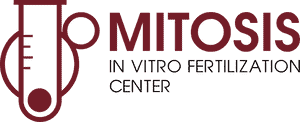SUMMARY
Introduction/Purpose
A chronic infection of the female reproductive system which is caused by sexually transmitted microorganisms and remains incurable may lead to an inflammation of the endometrium and subsequently to severe complications such as abortion, obstruction of the fallopian tube and infertility. That is why in this study we have dealt with the detection of the bacteria Chlamydia trachomatis, ureoplasma, mycoplasma hominis and the Mycoplasma genitalium as well as the herpes simplex virus (HSV I/II), in order to determine the percentage of their presence in the endometrium of asymptomatic women with history of infertility.
Material/Method
In 120 women of average age 37.9 years old (Β± 5.3), who suffered from fertility problems, endometrial tissue was obtained and was tested for detection of genetic material of the bacteria C. trachomatis, Ureoplasma, M hominis, M. genitalium and the herpes simplex virus (HSV I/II), using the technique of the real-time polymerase chain reaction (Real time PCR).
Results
In total, 3 samples were detected positive for the bacterium C. trachomatis (2.5%), 7 samples were detected positive for the bacterium Ureoplasma (5.8%), 1 sample was detected positive for the bacterium M. hominis (0.8%), whereas no sample was found positive for the bacterium M. genitalium and the herpes simplex virus (HSV I/II).
Conclusions
The direct testing of cells, originating in the endometrium of women with a history of infertility, in order to detect the presence of sexually transmitted microorganisms using high sensitivity methods, constitutes an additional tool to better detect silent infections, contributing to a successful in vitro fertilization cycle.
From
Vaia Gota, Mary Rosa MitropoulouMary Rosa Mitropoulou, Sonia Teftsoglou and Vaia GotaTheodosios Arkoulis, Mitosis Centre of Medically Assisted Reproduction, Piraeus
